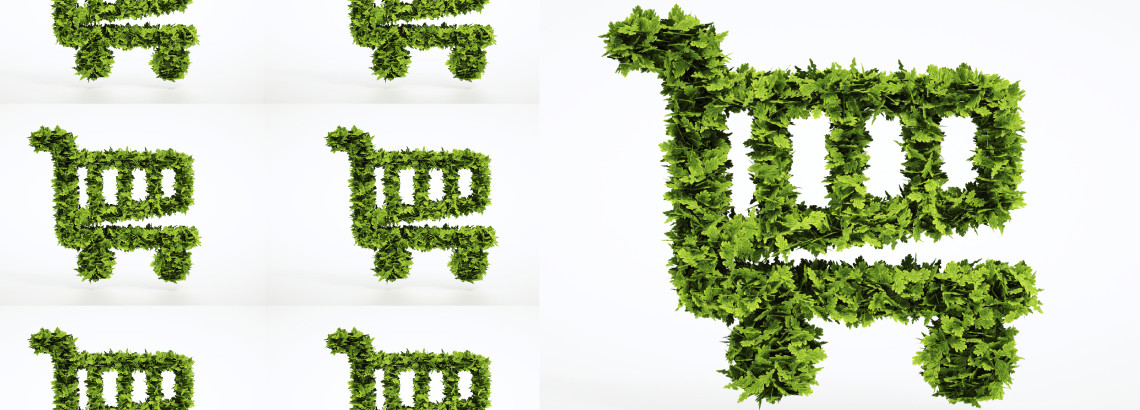Sustainable Consumption
A discussion with Christine Leedy
By Elisabeth Boon

Christine Leedy is a freelance worker at UCR who offers individual guidance and workshops in study skills and writing. She is also a Dru yoga and meditation teacher, and enjoys offering UCR student meditation sessions as well. Mindfulness is a very important part of her life: being aware allows you to be more conscious of not only your own body and mind, but also those around you. This practice of mindfulness can be taken to our daily technological and material consumption choices, where we ask ourselves: do I really need this?
How did you first hear about sustainable consumption?
Probably with the introduction of fair trade products. Coffee was one of the first examples, where people became aware that coffee farmers often worked in poor conditions or didn’t get paid very much for what they did. We in the West drink lots of coffee. I guess this is what made me see the necessity in being more aware of my own consumption choices. Maybe also it came from the idea wanting of to eat organic vegetables in season rather than having things flown in from Egypt. For more than 20 years, we have had a weekly vegetable package from a local farmer who didn’t use pesticides. I like being a part of that and encouraging local consumption.
How do you see yourself as a sustainable consumer?
It can be difficult. The choice is often overwhelming because, for example, with food shopping I do buy lots of organic products. I do shop at the local natural food store. But I also have my favorite products that are not in those categories. And of course, finances are also a consideration. There are times when I just choose the cheaper option.
Where do you get your inspiration from?
When I left the United States 25 years ago, I was already aware of consumption becoming rampant. That was when malls were totally taking off, and I remember thinking why does one town, of like 100,000 people, need three huge shopping malls? Not one, three! So when I arrived in the Netherlands I was happy that there were no malls where I lived. I didn’t really mind that in the grocery store you had limited choices. Though now you have many choices. My inspiration also comes from spiritual beliefs. I’ve always been involved in church communities or yoga groups where one learns to show respect for other human beings and the environment. It just feels better to me to do that.
How could one be more mindful of their consumption?
I think that’s a great message with mindfulness; you are asked to just be aware. Just asking ‘why’? Why do things give you pleasure? Then you might decide you’re going to eat organic foods, maybe because it tastes better and people work in better conditions. Mindfulness also makes you more grateful for small things. Being aware that we are all in this life together and we have to be mindful of each other’s needs, and that taking too much is not a good thing. That we are often stealing even though we don’t realize that we are.
Do you encourage your friends and colleagues to be sustainable consumers?
Of course it doesn’t usually work to be too overt in your opinions. But I certainly tell people about, for example, the vegetable package. I often try to buy a gift from the Wereld Winkel or some organic coffee or wine.
How can students become conscious/sustainable consumers?
Just ask yourself before you buy something: do I need this? We are bombarded by advertisements saying you need all these things to be happy. Even within the yoga community there’s a pressure to have the bright yoga mat and the right clothes. It’s everywhere! You just have to find the balance and think ok, I need this, this will make me a happy person. They need to be good reasons. But if it is just because you want it, and then tomorrow you might want something else, that’s not good. The problem with cheap things, especially school supplies, is that after a short time they will run out and you’ll have to go buy some new ones. Go home and check what you have, maybe you’ll find things you’ve forgotten about.
How can sustainable consumption be applied to our use of technology?
We are being bombarded with social media, and we have become attached to our telephones, which I use as well. This can encourage an over consumption. Everything you buy online, you’re going to be getting advertisements for later on. So it’s just like ‘buy, buy, buy’. We’re bombarded with information. There is a whole movement of people who feel that we should turn off our phones and not be online, especially when you are trying to concentrate, or are writing a paper, for example. Also just talking to each other, really talking to your classmates about a topic, you could get so much more out of it. We tend to think we can just figure it out online.
Elisabeth Boon, Class of 2017, is a Human Geography, Anthropology, and Biology major from Maputo, Mozambique.
Featured Image source: the Journal of Marketing Management Blog

